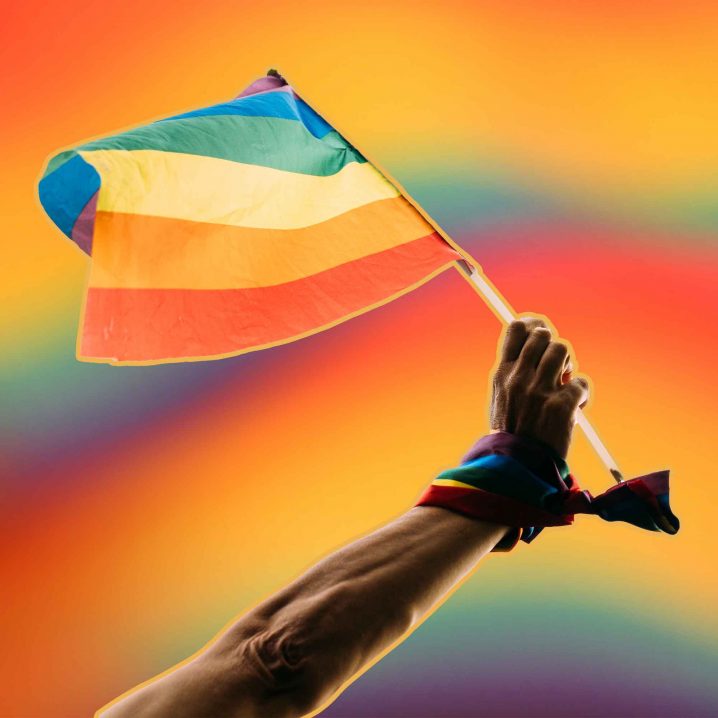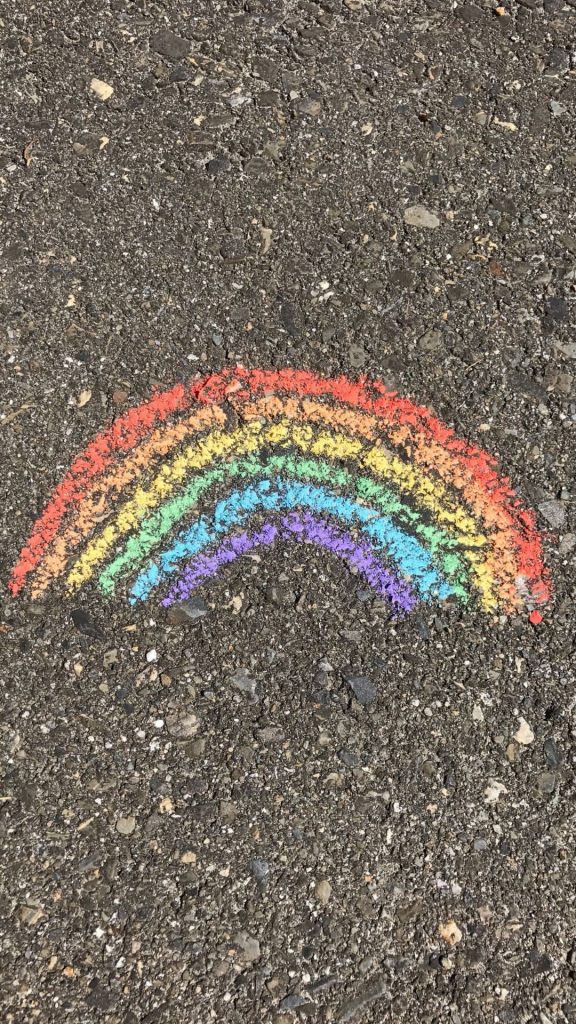
- POPSUGAR Australia
- Living
- Don’t Deadname: 5 Small but Powerful Ways to Be an Ally to the LGBTQIA+ Community
Don’t Deadname: 5 Small but Powerful Ways to Be an Ally to the LGBTQIA+ Community

August 27 is Wear It Purple Day — an annual LGBTQIA+ awareness day for young people in Australia. Supporters are asked to wear purple to celebrate diversity and young people from the LGBTQIA+ community. This year’s theme is focused on those everyday conversations we have that centre around sexual orientation and gender identity.
“It aims to remind people that the issues we reflect on Wear it Purple Day should not only be considered on that particular day… but every day,” reads the Wear It Purple website.
“If we are to empower rainbow young people to be proud of who they are, and who they might become, we need to encourage and support them each day in the classroom or workplace. The importance of pronouns and gender affirmation, as well as the use of inclusive language, is a great place to start.”
To get involved today, don something purple — be it clothing or accessories — and upload a picture of yourself in your purple gear on social media with the hashtag #WIPD2021. Getting involved in Wear It Purple Day and posting your involvement online is a small way to celebrate our LGBTQIA+ young people.
In celebration of Wear It Purple Day, we wanted to take a moment to acknowledge the importance of allyship and provide a gentle reminder of how to be a friend to the LGBTQIA+ community — not just today, but every single day.
Here are some small, but powerful steps you can take to be the best ally possible. Remember, this is not a comprehensive guide to allyship and that being an ally is all about action, not just giving yourself that label.
Listen
There are many different ways that someone might identify, so it’s important to not assume someone’s gender, sex or sexuality. Many people now include their preferred pronouns in their email signature or Instagram bio, so you can use that as a bit of a cheat sheet but when in doubt, just ask how someone likes to be referred to and really listen when they respond.
Remember to also keep in mind that the language a person prefers may change over time so be respectful and make the effort to adapt if that is the case.
Don’t Deadname
When interacting with a transgender person, please don’t use the name they were given at birth, unless they still very specifically go by that moniker.
Referring to a person who is transgender by their non-affirmed name can feel like a dismissal of the person’s identity and make them feel as though you don’t support their transition. In other words, it can invalidate their lived experience and potentially invoke any trauma or feeling of negativity connected to their birth name.
Equally important is being aware of which words and phrases are outdated or offensive and to avoid using them. Even if certain terms were “acceptable” when you were younger, it is crucial to update your vocabulary to reflect what is sensitive now.
Terms such ‘hermaphrodite’, ‘tranny’, ‘transsexual’, ‘sex change operation’, ‘shemale’ and ‘pre/post-op’ are not okay to use unless you are specifically told by someone that that is how they identify.

Speak Up
It is up to all of us to speak up when we see discrimination happening — whether it be in our workplace, school, group of friends or even within our family.
Oftentimes, the people who are being discriminated against do not feel comfortable defending themselves for fear of further conflict. That is why it’s important to take the time to address the person who is perpetrating bad behaviour and explain to them why they are out of line.
Yes, it can be uncomfortable to tell someone that their behaviour is not okay, but that is nothing compared to the discomfort LGBTQIA+ people can experience on a day to day basis thanks to intolerance.
Donate
Whether it be your time, money or both, donating to organisations that provide resources and support to members of the LGBTQIA+ community is a great way to show your allyship in a truly tangible way.
Spend some time researching various groups in the space to find some that you resonate with and reach out to them to see how you can get involved, then encourage your friends to do the same.
Be Open to Learning
It is crucial for us to educate ourselves on the issues that the LGBTQIA+ community face today.
For example, people who identify as transgender are disproportionately discriminated against and suffer alarmingly high rates of violence, isolation, harassment, bullying and the mental health issues that stem from such treatment.
By delving into these challenges, and the systems that enable them, we can begin to better understand how we can all make the world safer for our beautiful LGBTQIA+ friends.
More information can be found at ReachOut Australia — a resource for people who have questions about, or feel like they need support related to, sexuality or gender.


